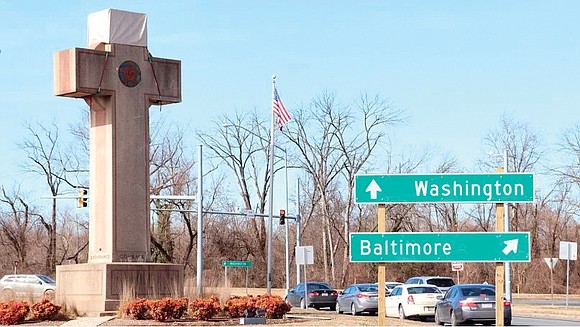Veterans Administration revises policy on religious displays
Adelle M. Banks/Religion News Service | 7/12/2019, 6 a.m.

In the wake of the U.S. Supreme Court’s recent decision permitting a cross to remain on a public highway, the U.S. Department of Veterans Affairs has revised its policies on religious symbols in displays at VA facilities.
Veterans Administration Secretary Robert Wilkie announced July 3 that the new policies will reduce inconsistencies among VA facilities.
“We want to make sure that all of our veterans and their families feel welcome at the VA, no matter their religious beliefs. Protecting religious liberty is a key part of how we accomplish that goal,” he said in a statement.
“These important changes will bring simplicity and clarity to our policies governing religious and spiritual symbols, helping ensure we are consistently complying with the First Amendment to the U.S. Constitution at thousands of facilities across the department.”
The revised policies “allow the inclusion in appropriate circumstances of religious content in publicly accessible displays at VA facilities.”
They also permit patients to request and be provided with sacred texts, symbols and religious literature during treatment at facilities or visits to VA chapels. And they allow the VA “to accept donations of religious literature, cards and symbols at its facilities and distribute them to VA patrons under appropriate circumstances or to a patron who requests them.”
The announcement noted the June 20 decision by the nation’s highest court in which it permitted the so-called “Peace Cross,” a World War I monument in Bladensburg, Md., to remain in a traffic circle. The VA said the case “reaffirmed the important role religion plays in the lives of many Americans and its consistency with Constitutional principles.”
The VA’s policy revisions come two months after an Air Force veteran filed suit against the director of the Manchester VA Medical Center in New Hampshire seeking the removal of a Bible from a POW/MIA table at that facility.
“As a Christian, he respects and loves all his military brothers and sisters and does not want to be exclusionary by the placement of the Christian Bible,” the suit states.
The Military Religious Freedom Foundation, which the suit states received complaints from 14 other veterans about the display, decried the VA’s revamped rules.
“These brand new VA policies … are nothing more than a transparent and repugnant attempt to further buttress and solidify fundamentalist Christianity as the insuperable official religion of choice for the VA, our Armed Forces and this country,” said MRFF President Mikey Weinstein.
The MRFF previously has complained about similar Bible displays at other locations, such as a Navy hospital in Japan and an Air Force base in Wyoming.
First Liberty Institute, a nonprofit legal organization that sent a letter in May to Secretary Wilkie requesting “a VA-wide policy that permits Bibles to be included in POW/MIA remembrance displays,” applauded the revamped policies.
“This new VA policy is a welcome breath of fresh air,” said Mike Berry, director of military affairs for First Liberty Institute, which also helped defend the Maryland cross monument.
“The Supreme Court recently upheld the constitutionality of religious displays with historic roots such as those commonly found in VA facilities. We commend the VA for taking this necessary and positive action.”







